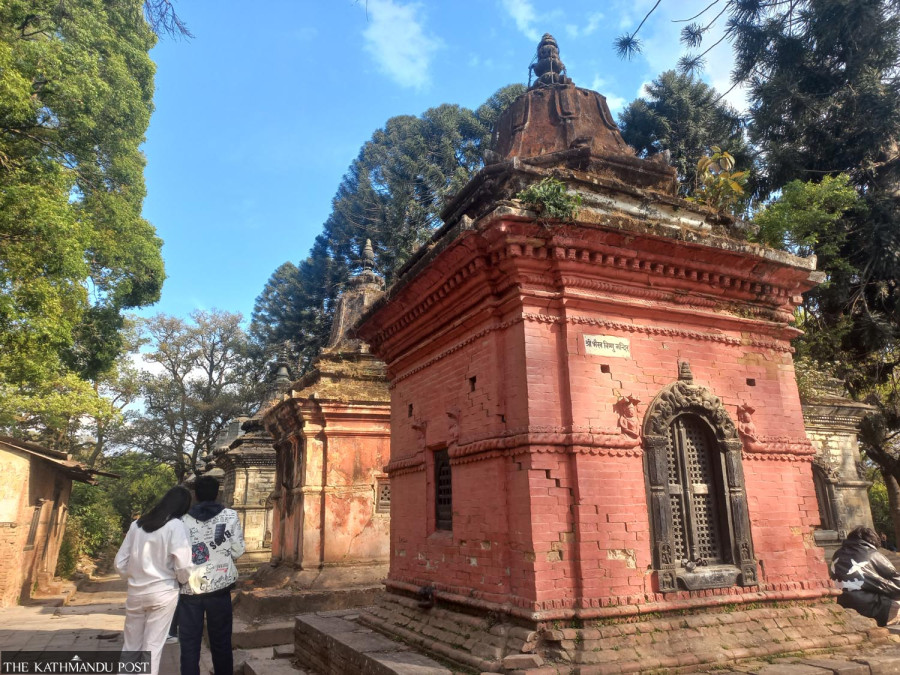Editorial
Faith betrayed
The trustees of the Pashupatinath temple are failing in their duty. They are also misusing believers’ donations.
As you stroll around the holy shrine of Pashupatinath, you cannot help but notice its sorry state: Litter scattered here and there, stinking toilets, lack of drinking water and beggars annoying the visitors for alms. What’s more, over two dozen dilapidated temples await attention. Even the famous row of Shivalayas, the Gorakhnath temple, and other historical monuments that have all developed scary-looking cracks by the 2015 earthquakes haven’t received a reconstruction plan. Pashupatinath, also a UNESCO World Heritage Site, is slowly going to the ruins due to the negligence and dishonesty of its management body—the Pashupati Area Development Trust (PADT). The Trust seems to have done little to preserve the area, despite its copious incomes.
The Trust amasses hundreds of millions of rupees every year. It collected Rs750 million just in the last fiscal year. Its financial record reveals a staggering Rs1.2 billion cash in several banks, along with the acquisition of 9.7kg gold, 316.5kg silver and 3,667 ropanis of land in the 56 years from 1962 to 2019. So what is all this wealth being used for? There have been some laudable efforts, for instance the introduction of electric crematorium, new kiriyaputri buildings, and installation of portable toilets. But with the kind of earnings of the Trust, a lot more could (and should) have been done.
As if the mismanagement and opacity at the Trust were not enough, on January 28 a donation box that was under 24-hour CCTV surveillance disappeared from the western part of the Pashupatinath Temple. The investigation committee is yet to make its findings public. The Trust has also underreported its earnings from pilgrims’ donations during this year’s Mahashivaratri. A handful of folks are clearly profiting from these financial shenanigans.
The Trust, as per the Pashupati Area Development Trust Act, 1987, operates under the patronage of the prime minister of Nepal and the chairpersonship of the tourism minister. Yet timely intervention of these high-ranking government authorities has been sorely missing, especially when it comes to ensuring transparency in the Trust’s functioning. If this state of neglect continues, in time, even the world heritage site status of the area may be threatened.
Interestingly, there is a provision in the Pashupati Area Development Trust Act that requires the Office of the Auditor General to audit the accounts of the Trust. Yet it is hard to believe that the current state of mismanagement and neglect would have continued had the books been properly audited. Or is it that whatever anomalies the office has pointed out over the years have been papered over thanks to the political protection the Trust members enjoy?
The Pashupatinath area is not only associated with the religious sentiments of the vast majority of Nepalis; thousands of tourists from every part of the country and beyond come to marvel at its cultural and historical heritage. This national treasure should not be allowed to go to waste because of the vested interests of a few individuals. No one should have the right to play with people’s faith or with the money they give for the upkeep of their god’s sanctuary.




 20.12°C Kathmandu
20.12°C Kathmandu













